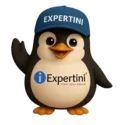- Expertini Resume Scoring: Our Semantic Matching Algorithm evaluates your CV/Résumé before you apply for this job role: Quantum Optics Scientist QPU Prototyping.

Urgent! Quantum Optics Scientist - QPU Prototyping Job Opening In Massy – Now Hiring Quandela
Quantum Optics Scientist QPU Prototyping
Job description
About Quandela:
Quandela is a European scale-up that provides photonic quantum computers that are modular, scalable, energy-efficient, and accessible both on the cloud and on-premise.
Our team of 140 employees specialises in the development of both software and hardware solutions for a variety of quantum applications.
We offer a wide range of services: from building the brightest single-photon sources, to designing algorithms for quantum computers, to providing cloud quantum computing access.
Quandela plays a pivotal role as a strategic partner in the quantum transformation of industrial sectors such as energy, finance, pharmaceuticals, and transportation.
We are also esteemed collaborators within the academic and research community
About your team:
You’ll join the QPU Prototyping team, part of QPU Integration.
Your team focuses on the development of next-generation optical quantum computing systems.
Their primary responsibility is designing and refining R&D QPUs, accessible through Quandela’s cloud platform.
The team develops modular components, adds new features, and improves QPU performance to align with Quandela’s long-term quantum computer architecture.
Why This Role Matters?
- From ideas to hardware
You turn hypotheses into prototypes, and prototypes into QPU modules that run. - Scaling the roadmap
You bridge the gap from design to stable operation.
Every improvement in loss, uptime, or fidelity takes us closer to 6 → 12 → 24+ qubit systems with higher fidelity.
It also paves the way for next-generation QPUs, enabling feedforward, error correction, and ultimately universal fault-tolerant quantum computing. - Shaping the system
Your experiments, ground them in science, set the standards — from error budgets to control strategies and design trade-offs across the stack.
Requirements
What will you do?
> Build & improve QPU modules:
- Prototype optical modules
Design, assemble, align, measure, and stabilize complex free-space and fibered optical systems. - Integrate into the QPU
Bring modules online, debug, optimize, and validate against spec.
Hand over with clear procedures and test plans. - Improve performance
Once integrated, track loss and drift, isolate noise sources, and implement fixes that hold — pushing qubit fidelity and system stability forward, while contributing to next-generation QPUs with new features.
> Tools & knowledge sharing:
- Code for the lab
Develop pragmatic Python tools for acquisition, calibration, and analysis (scripts, utilities, quick plots) — tools your teammates actually reuse. - Document & collaborate
Work full-stack with peers (optics, electronics, semiconductors, software).
Leave behind clear lab notes and protocols so others can run the system without you.
---
How You’ll Grow?
- 0–3 months: own a bench; deliver your first doc pack (procedure + checklist + Python tools), complete a characterization.
- 3–6 months: own one module from V0 to QPU integration; hit targets on loss/stability, standardize tests.
- 6-12 months: own multiple modules or a QPU area, contribute to planning, and trade-offs (Quality/Cost/Schedule).
--> Next steps ? mentor juniors, lead projects, step into Optics Lead.
---
What We’re Looking For ?
*Must-Have:
- Hands-on experimental optics: complex design, alignment, metrology.
- Python for the lab: acquisition, calibration, analysis, plots (code that speeds up work).
- Documentation discipline: Feedback, procedures, test protocols.
*Important (can grow here):
- Basic electronics for the bench: safe operation, light soldering, DAQ, drivers.
- Semiconductor awareness: (quantum-dot sources, couplings, packaging)
*Bonus:
- Exposure to quantum optics (correlations/HOM), PICs, cryogenics, optimal control, or firmware/FPGA.
*Languages:
- English professional level required.
---
Examples of backgrounds we value:
For this role, we’re looking for a PhD profile with proven experience in complex optical systems — someone who can master experimental design, alignment, and measurement, and turn that expertise into reliable hardware modules.
- Experimental quantum/photonic optics scientist (PhD) eager to land hardware in a product.
- Optical/laser systems scientist/engineer with robust bench skills and pragmatic Python.
- Research-trained profile who has delivered lab modules into operational handover.
Benefits
Remuneration:
- €57.5k gross — indicative entry for PhD + 1–2 years (operational on bench + Python + documentation).
- €60–65k gross — PhD + 4–5 years (leading modules/projects, allocating resources, coordinating peers, shaping roadmap impact).
Profit-sharing & company savings plan, 100% health coverage (Alan), Swile meal vouchers, transport/mobility support, Gymlib
And above all ...
Quandela is where rigor meets vision: where experiments evolve into machines, and machines into breakthroughs.
What you create doesn’t vanish after the test — it endures in quantum processors that deliver stable qubits and enable the next generation of applications.
If you’re ready to do makes tomorrow’s quantum computing possible, one module at a time, in a pioneering deeptech environment, let’s speak 😊
Your Complete Job Search Toolkit
✨ Smart • Intelligent • Private • Secure
Productivity & Wellbeing (Private)
Organize and maintain wellnessSalary and Tax Calculator
Financial planning toolsInterview Preparation (Private)
Master your interviewsInterview Practice
Practice for Any Interview Q&A (AI Enabled)
Interview Prediction
Predict interview Q&A (AI Supported)
Interview Practice Timer
Mock interview trainer (AI Supported)
Behavioral Mastery
Ace behavioral interviews (AI Powered)
Question Journal
Record interview questions (Confidential)
Interview Ace
Master your interviews
Q&A Logs
Track your answers (Confidential)
Application Tools (Private)
Optimize your applicationsApplication Planner
Schedule your applications (Confidential)
Cover Letter Tool
Create perfect cover letters (AI Supported)
Resume Score
Analyze your resume (NLP Supported)
ATS Score
ATS compatibility check (AI Supported)
Application Analyzer
Optimize your applications (AI Supported)
Career Planning & Analysis (Private)
Plan your career pathCV & Resume Builder Templates (Private)
Professional resume templatesProfessional
O*NET Supported
Executive
O*NET Supported
Modern
O*NET Supported
Creative
O*NET Supported
Minimalist
O*NET Supported
Europass
European Union Recommended
Student
Institution Recommended
Graduate
Institution Recommended
Academic
Researcher Recommended
Developer/IT
IT Savvy Recommended
Skilled Worker
Trades Recommended
Monochrome
O*NET Supported
Art
Artist Recommended
Harvard
Researchers Recommended
Community Research
Join and contributeProfile & Core Tools
Build your professional presenceRegister
Create your account
Login
Access your account
Profile Builder
Create your professional profile
View Profile
Preview your profile
Bookmarked Jobs
Your saved opportunities
Your Reviews
Reviews you've given
Following
Companies you follow
Find Companies
Discover employers
Standalone CV Builder
O*NET Supported
Other Utilities (Private)
Additional helpful toolsResources & FAQ
Get help and guidanceGeneral FAQ
Common questions answered
Job Seekers FAQ
Help for job seekers
Job Matching
How matching works
Personalized Matching
Customized job suggestions
Quick Apply
Fast application process
Alert Frequency
Manage alert settings
Job Alerts Guide
Understanding alerts
Resume Matching
How we match resumes
Ethical Branding
Professional branding guide
Candidate Visibility
Increase your visibility
Verified Badge
Get verified status
AI ATS Technology
Learn about our AI
ATS Ranking
How ATS ranks you
Semantic Matching
AI-powered matching
Join thousands of professionals who've advanced their careers with our platform
Please Note: This is NOT a job application form.
-
Real-time Quantum Optics Jobs Trends in Massy, France (Graphical Representation)
Explore profound insights with Expertini's real-time, in-depth analysis, showcased through the graph below. This graph displays the job market trends for Quantum Optics in Massy, France using a bar chart to represent the number of jobs available and a trend line to illustrate the trend over time. Specifically, the graph shows 22 jobs in France and 5 jobs in Massy. This comprehensive analysis highlights market share and opportunities for professionals in Quantum Optics roles. These dynamic trends provide a better understanding of the job market landscape in these regions.
-
Are You Looking for Quantum Optics Scientist QPU Prototyping Job?
Great news! Quandela is currently hiring and seeking a Quantum Optics Scientist QPU Prototyping to join their team. Feel free to download the job details.
Wait no longer! Are you also interested in exploring similar jobs? Search now: Quantum Optics Scientist QPU Prototyping Jobs Massy.
-
The Work Culture
An organization's rules and standards set how people should be treated in the office and how different situations should be handled. The work culture at Quandela adheres to the cultural norms as outlined by Expertini.
The fundamental ethical values are:- 1. Independence
- 2. Loyalty
- 3. Impartiality
- 4. Integrity
- 5. Accountability
- 6. Respect for human rights
- 7. Obeying France laws and regulations
-
What Is the Average Salary Range for Quantum Optics Scientist QPU Prototyping Positions?
The average salary range for a Quantum Optics Scientist QPU Prototyping Jobs France varies, but the pay scale is rated "Standard" in Massy. Salary levels may vary depending on your industry, experience, and skills. It's essential to research and negotiate effectively. We advise reading the full job specification before proceeding with the application to understand the salary package.
-
What Are the Key Qualifications for Quantum Optics Scientist QPU Prototyping?
Key qualifications for Quantum Optics Scientist QPU Prototyping typically include Computer Occupations and a list of qualifications and expertise as mentioned in the job specification. Be sure to check the specific job listing for detailed requirements and qualifications.
-
How Can I Improve My Chances of Getting Hired for Quantum Optics Scientist QPU Prototyping?
To improve your chances of getting hired for Quantum Optics Scientist QPU Prototyping, consider enhancing your skills. Check your CV/Résumé Score with our free Resume Scoring Tool. We have an in-built Resume Scoring tool that gives you the matching score for each job based on your CV/Résumé once it is uploaded. This can help you align your CV/Résumé according to the job requirements and enhance your skills if needed.
-
Interview Tips for Quantum Optics Scientist QPU Prototyping Job Success

Here are some tips to help you prepare for and ace your job interview:
Before the Interview:
- Research: Learn about the Quandela's mission, values, products, and the specific job requirements and get further information about Other Openings
- Practice: Prepare answers to common interview questions and rehearse using the STAR method (Situation, Task, Action, Result) to showcase your skills and experiences.
- Dress Professionally: Choose attire appropriate for the company culture.
- Prepare Questions: Show your interest by having thoughtful questions for the interviewer.
- Plan Your Commute: Allow ample time to arrive on time and avoid feeling rushed.
- Be Punctual: Arrive on time to demonstrate professionalism and respect.
- Make a Great First Impression: Greet the interviewer with a handshake, smile, and eye contact.
- Confidence and Enthusiasm: Project a positive attitude and show your genuine interest in the opportunity.
- Answer Thoughtfully: Listen carefully, take a moment to formulate clear and concise responses. Highlight relevant skills and experiences using the STAR method.
- Ask Prepared Questions: Demonstrate curiosity and engagement with the role and company.
- Follow Up: Send a thank-you email to the interviewer within 24 hours.
- Be Yourself: Let your personality shine through while maintaining professionalism.
- Be Honest: Don't exaggerate your skills or experience.
- Be Positive: Focus on your strengths and accomplishments.
- Body Language: Maintain good posture, avoid fidgeting, and make eye contact.
- Turn Off Phone: Avoid distractions during the interview.
To prepare for your Quantum Optics Scientist QPU Prototyping interview at Quandela, research the company, understand the job requirements, and practice common interview questions.
Highlight your leadership skills, achievements, and strategic thinking abilities. Be prepared to discuss your experience with HR, including your approach to meeting targets as a team player. Additionally, review the Quandela's products or services and be prepared to discuss how you can contribute to their success.
By following these tips, you can increase your chances of making a positive impression and landing the job!
-
How to Set Up Job Alerts for Quantum Optics Scientist QPU Prototyping Positions
Setting up job alerts for Quantum Optics Scientist QPU Prototyping is easy with France Jobs Expertini. Simply visit our job alerts page here, enter your preferred job title and location, and choose how often you want to receive notifications. You'll get the latest job openings sent directly to your email for FREE!
Unlock Your Quantum Optics Potential: Insight & Career Growth Guide

